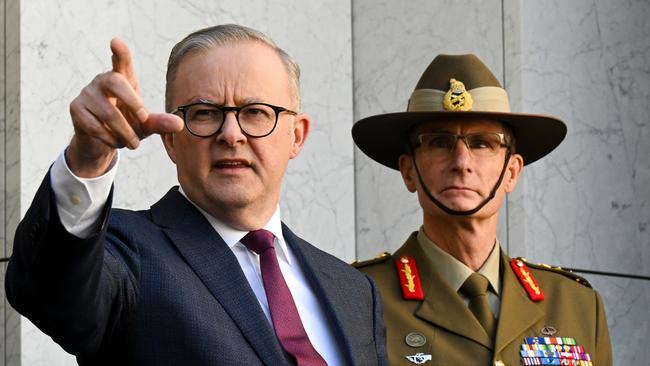
This has created a complacent relationship between governments, the Defence Department and the defence industry. When ministers at Defence events talk about “green shoots” emerging in industry capabilities, or of the importance of “sovereign capabilities”, business will echo the talking points, no matter how vacuous, while privately saying the opposite.
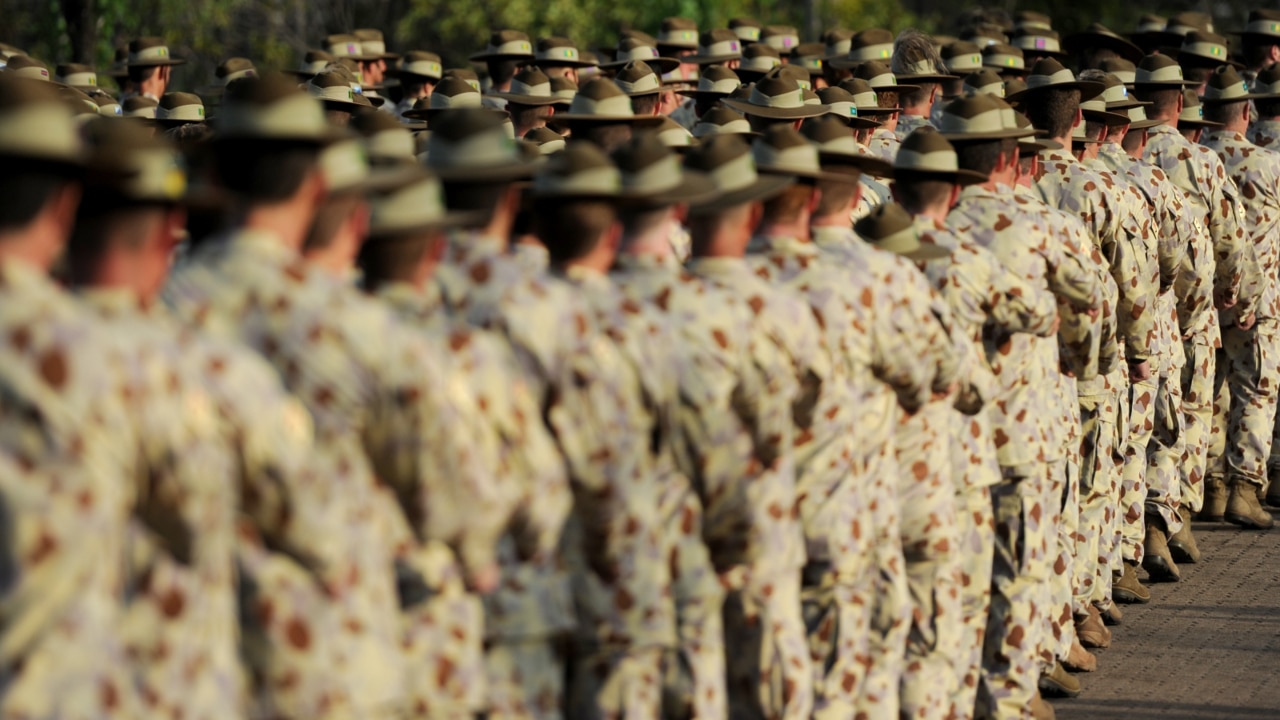
As Ben Packham reported in The Australian on Tuesday, business leaders are now warning that government policies create “the real prospect of our homegrown industry exiting the defence space and reducing Australia’s national resilience”. Government should heed the warning that something has gone deeply wrong in its approach to Defence, notwithstanding the claims of bipartisanship.
Things were supposed to be different under the Albanese government. Transparency and accountability were going to open the black box of policymaking. The most significant review in generations was going to redesign the Defence Force, making it fit for purpose in the riskiest strategic environment since the end of the Second World War.
How quickly these aspirations have been mugged by budget reality. Far from being transparent about policymaking, the government has hidden the Defence Strategic Review produced by Stephen Smith and Sir Angus Houston on the spurious grounds of national security.
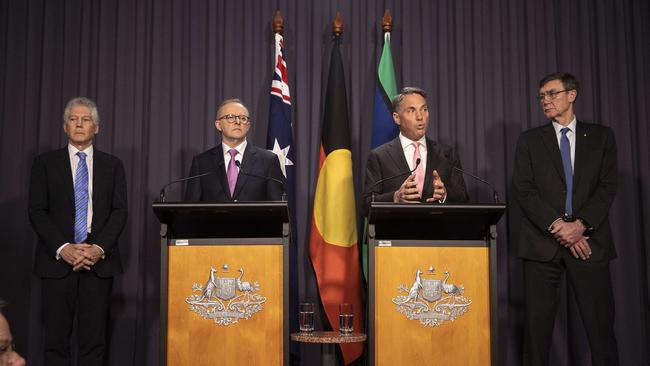
Instead, last April a Defence-produced document was released addressing only half of the Smith-Houston recommendations. A committee of Canberra insiders recommended by Defence has been appointed to oversee implementation of the Defence Strategic Review, or at least those recommendations approved by Defence. The secretary of Defence and Chief of the Defence Force will lead the DSR management board; that is to say, the heads of an organisation deemed by Smith and Houston “not fit for purpose” in terms of the ADF’s structure and the way Defence acquires military capabilities. It is notable there is not a single defence industry representative on the board, no one from the private sector, no one even from the union movement.
The business entities that will actually produce the new defence equipment proposed by Smith and Houston are left completely outside the Canberra bubble. The financial situation is dire. The DSR added no new funding for Defence. Spending will reduce from the previous government’s spending plans over the next four years.
Defence’s main internal challenge is to reprioritise its spending to account for more projects but no more money. The last time Defence was forced to do this was under the Gillard government, when spending shrank to 1.59 per cent of gross domestic product in 2011-12, the lowest since the 1930s.

Doing more with less in 2012 reduced the ADF’s readiness, cut the budget for sustainment and bases, deskilled the military and civilian work force, and delayed equipment projects.
Coalition governments after Gillard celebrated cutting thousands of civilian public servants from Defence. These were the people who delivered defence equipment. Many came back as contractors on larger salaries.
In 2023, the ADF will lose its combat edge all over again. Defence spending this year is 2.05 per cent of GDP. In addition to the plans set out in the Morrison government’s 2016 defence white paper, we must factor in the enormous costs of nuclear-powered submarines; at least 13,000 more ADF personnel (not counting sub crews); big new cyber investments, and missile stockpiles and production.
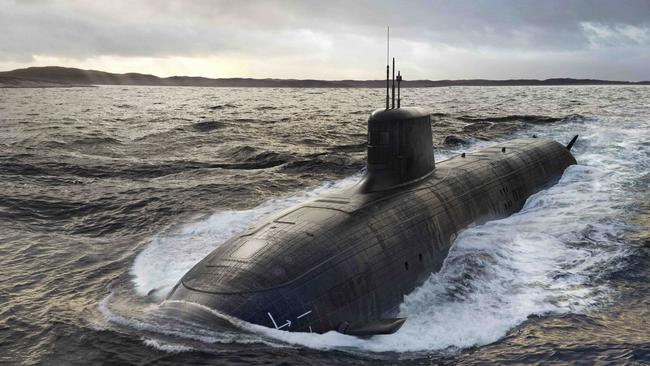
Then there is AUKUS pillar two – covering uncoated and unbudgeted hypersonic weapons, quantum computing and machine learning, undersea technology, and autonomous land, sea and air drones.
In effect, what successive governments have given us amounts to 4 per cent of GDP in defence aspirations but only 2 per cent of funding. This is magical thinking. The DSR is undeliverable for the allocated money and under current management approaches.
At the beginning of June Albanese assured his Shangri-La Dialogue audience in Singapore that he was “strengthening our deterrence”: Australia is “not opting out from the big questions of security and stability. We are not choosing the smooth ride, or the passive course”.
As things stand, Defence investment, planning and management remain unfit for purpose. The gap between the government’s strategic assessment and what it is actually doing is growing wider. What should Albanese do? First, he should go to the NATO summit in July with a substantial package of military aid for Ukraine, including providing the 41 retired F/A8 Hornet aircraft.

Australia’s support for Ukraine has lost momentum. Deterrence must be a shared effort across the democracies, meaning Australia should support Kyiv as we would want countries to support us.
Second, Albanese should release the full Smith-Houston defence review before it is leaked piecemeal. It is a serious piece of work, reflecting the seriousness of our strategic situation. It should not be hidden for expedient budget reasons.
Finally, Albanese needs to start engaging with the business community and defence industry about how they must work together to meet national strategic challenges. A prime ministerial business advisory group on national resilience, mobilisation and defence is essential. Leaving these policy issues to the Defence Department with it’s closed-door “business as usual” approach, will change nothing.
This is a threshold issue for the Prime Minister. In Smith and Houston’s phrase, Defence will remain “not fit for purpose” for the life of this government unless the PM chooses to set new directions.


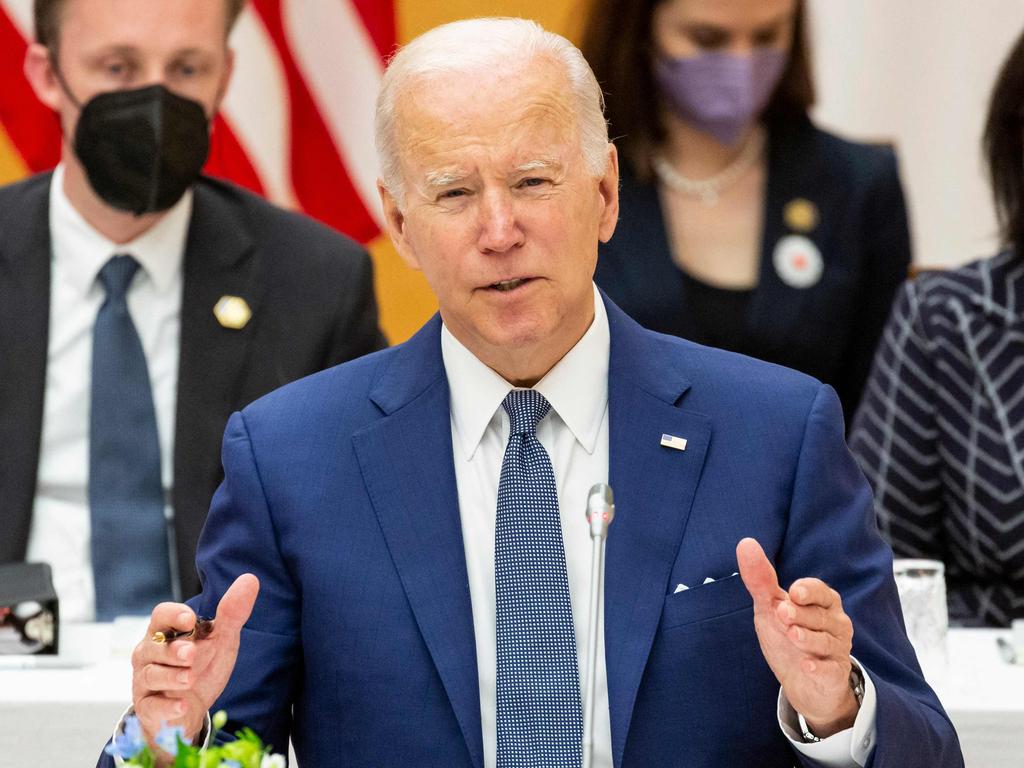

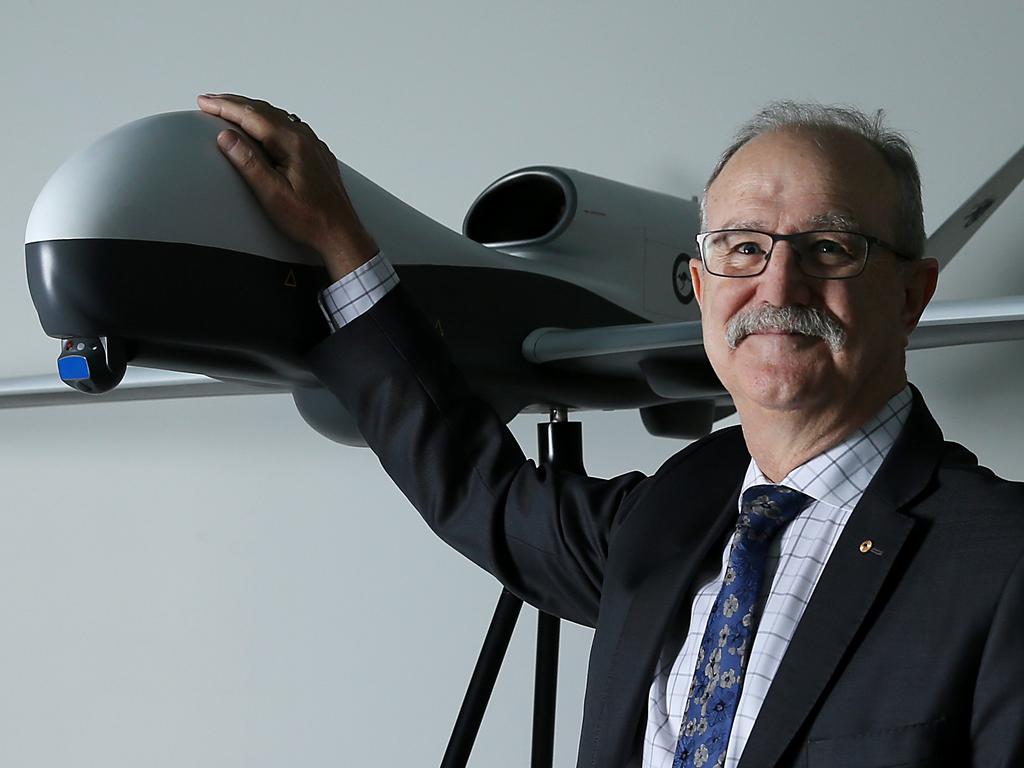
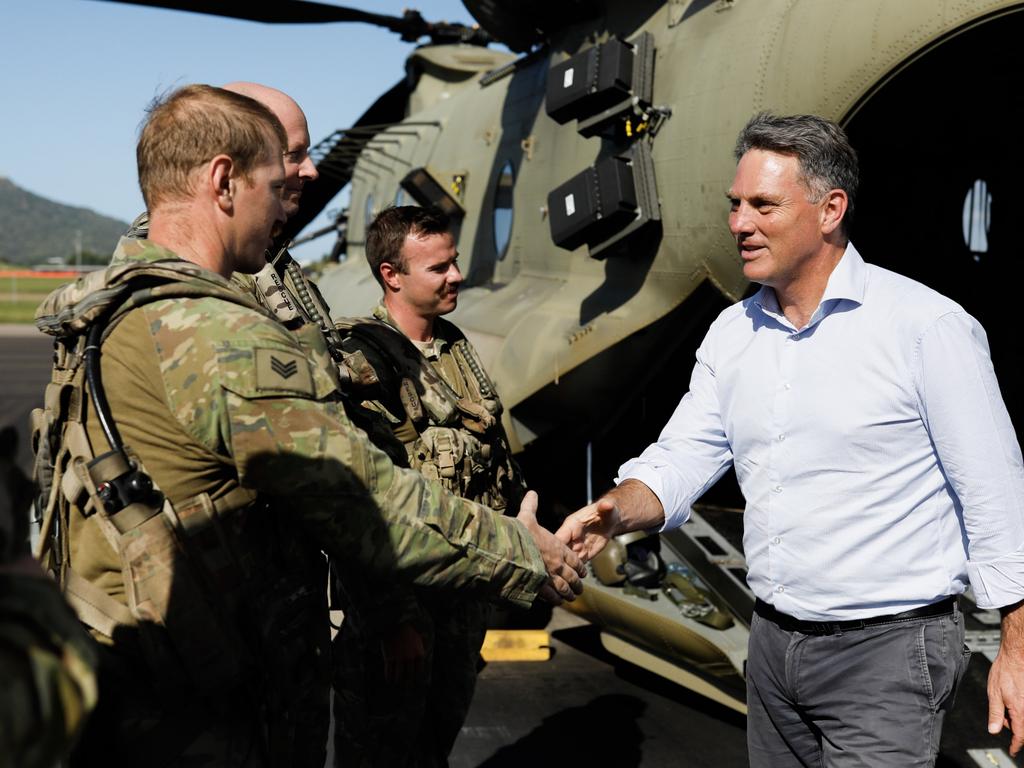
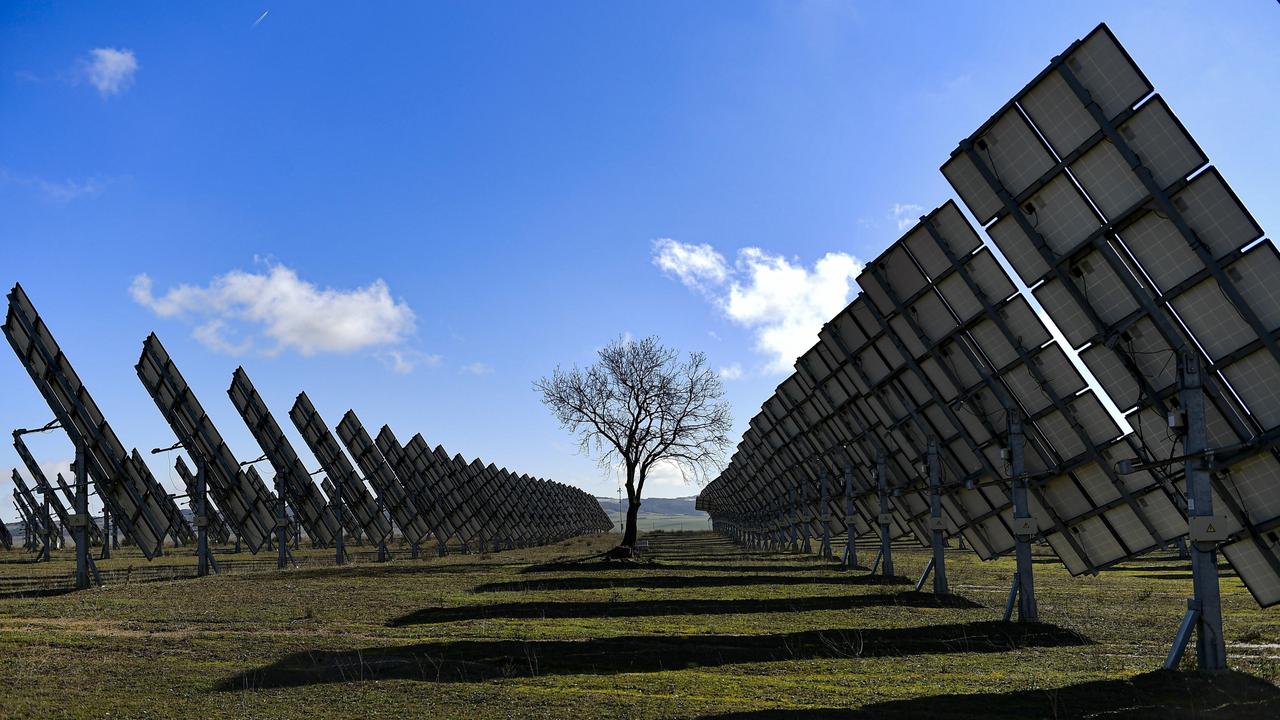
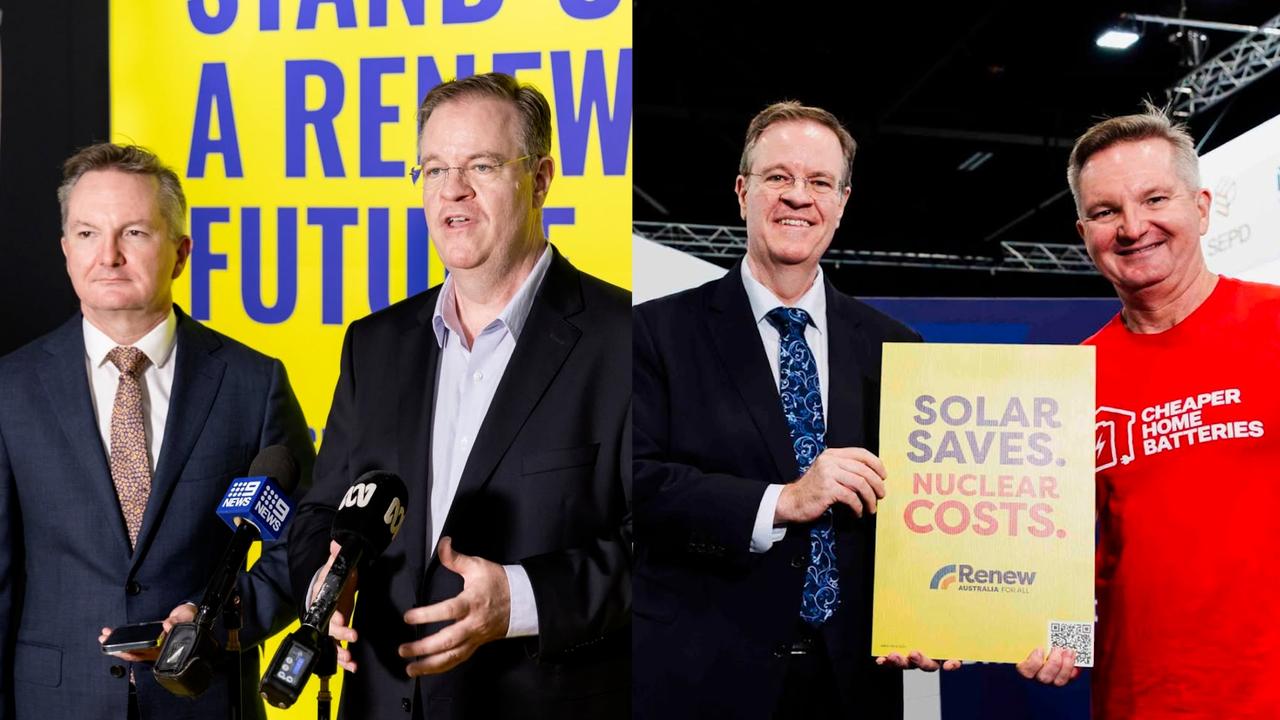
Australia’s defence industry leaders typically operate below the radar when it comes to critiquing defence policy. That’s hardly surprising. The industry has one customer – the government – and business doesn’t complain about the paymaster.